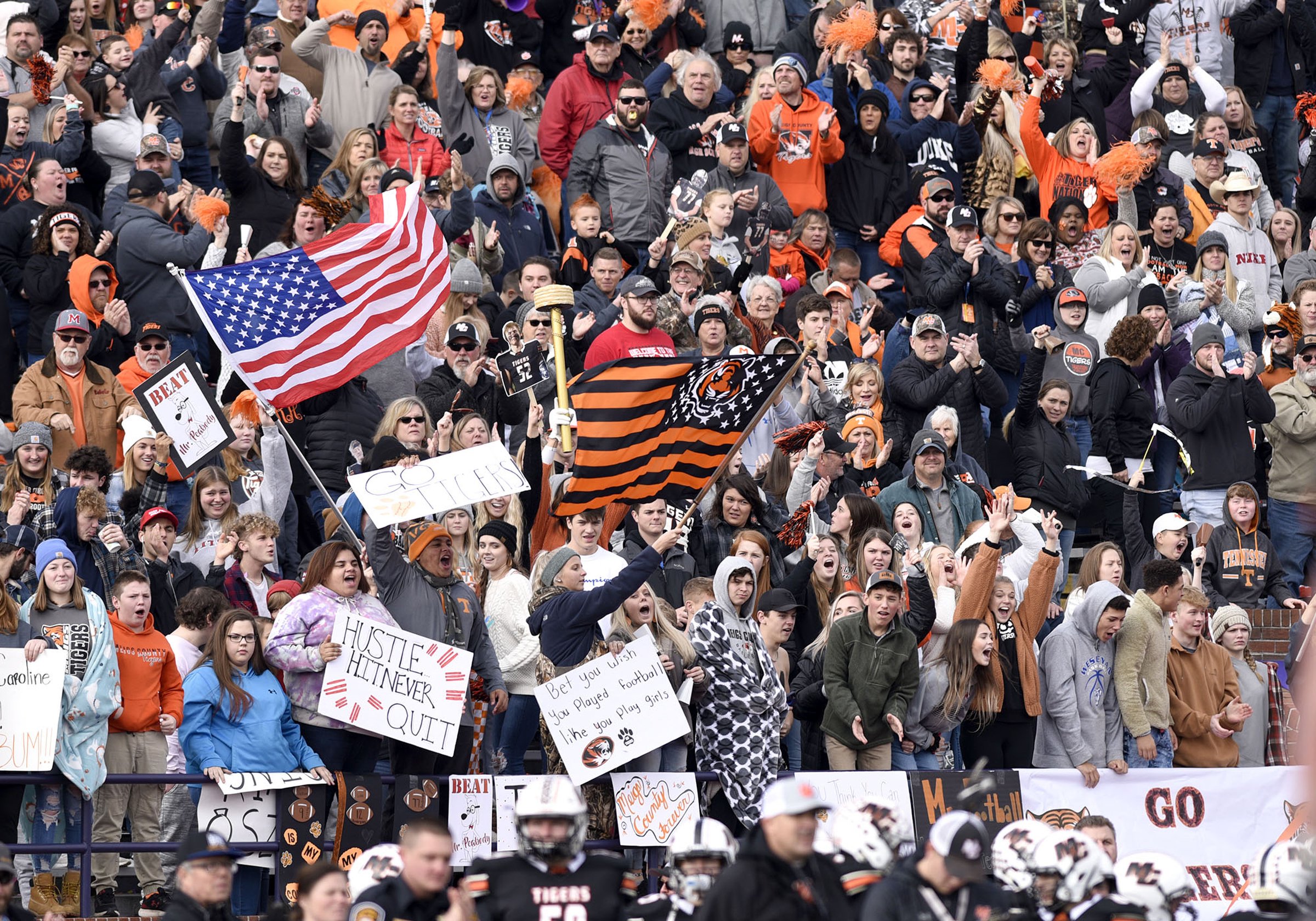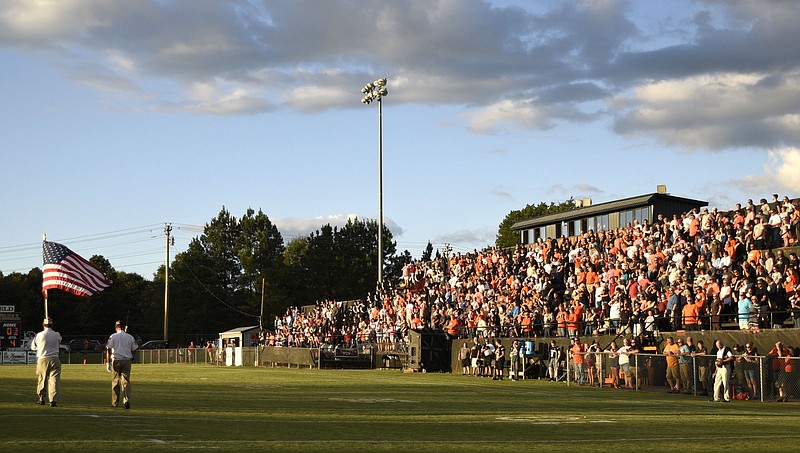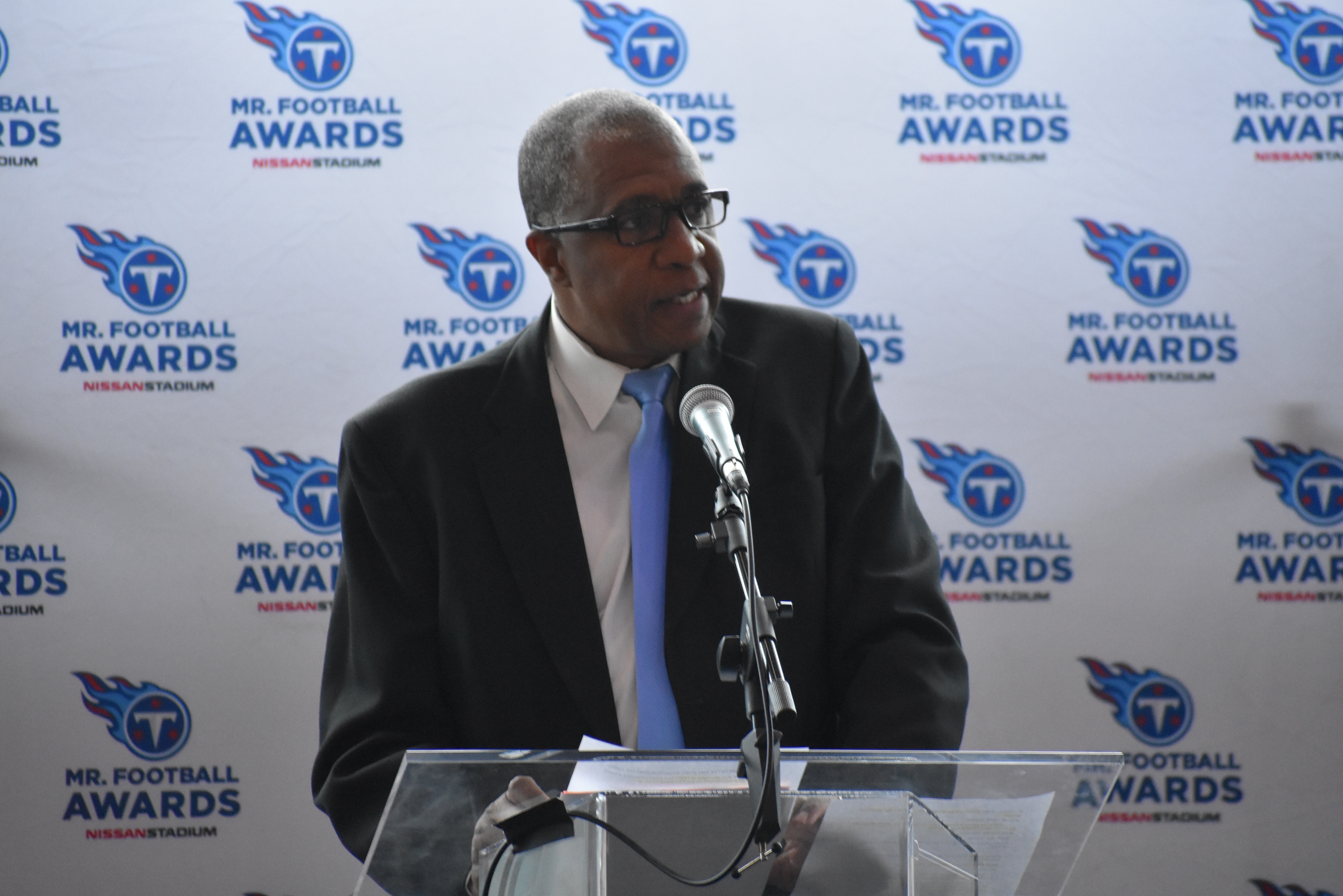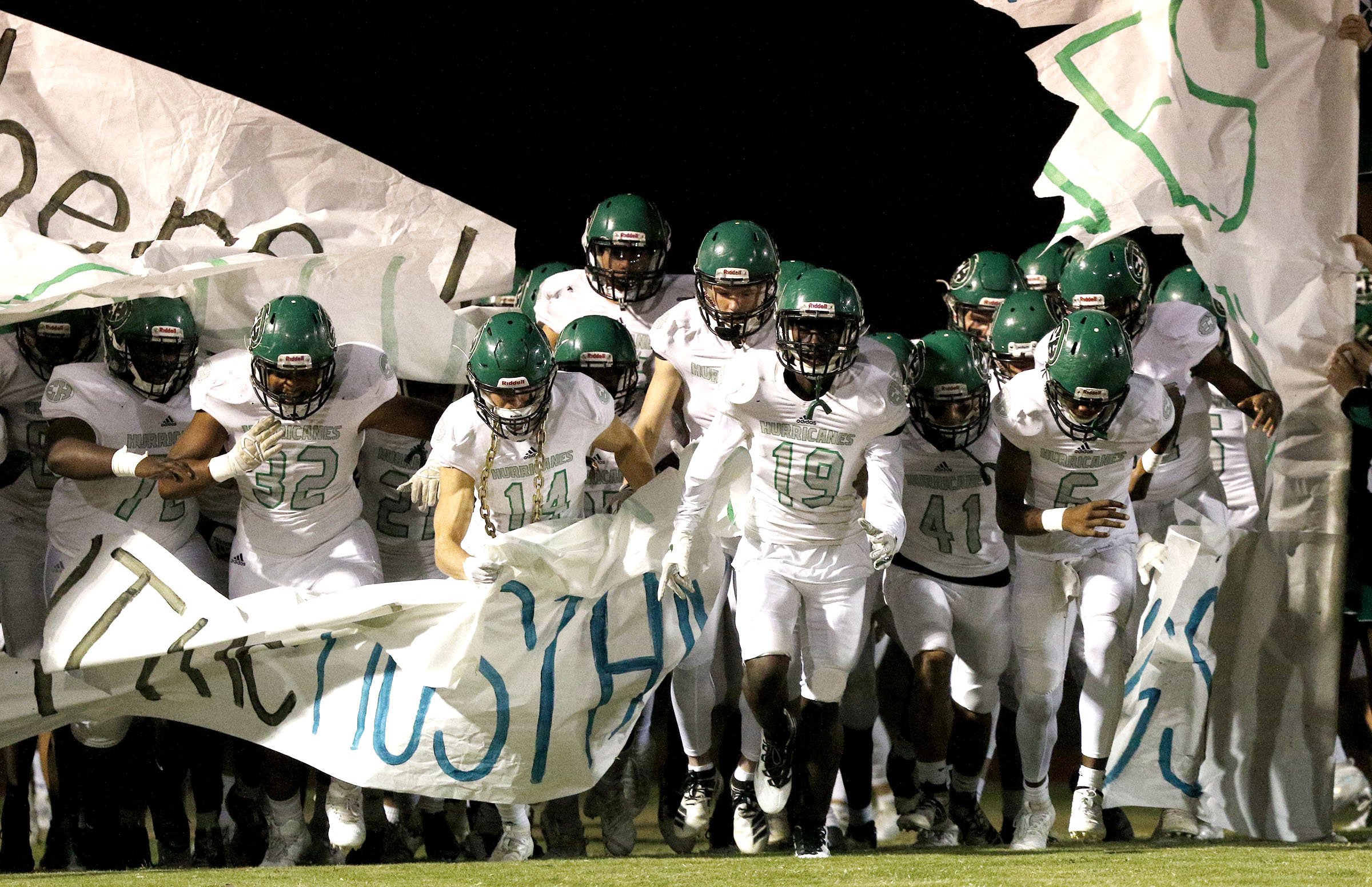In just more than four months, high school football season is scheduled to kick off across Tennessee, bringing with it the return of a much-needed sense of normalcy.
However, a return to any playing field for high school sports will depend on concerns regarding the COVID-19 pandemic improving.
When the TSSAA was forced to cancel the remainder of the girls' and boys' state basketball tournaments as well as the entire spring sports season because of the pandemic, it cost the state's prep sports governing body $1.1 million in lost revenue.
Executive director Bernard Childress said the financial reserve the TSSAA has built through the years will ensure the organization can withstand such losses. But should health concerns linger and force campuses to remain closed into next school year - either severely cutting into or canceling football season outright - Childress admitted the TSSAA could not recover from the resulting financial losses.
"To lose football would be devastating," Childress said. "I cannot see a scenario where we could survive losing football, plain and simple. It's no secret that you could combine the postseason for every other sport and it wouldn't add up to what football brings in. There are several other sports where even the championship tournaments actually lose money.
"In order to make our budget, the state has to depend on the revenue from football."
'The ripple effect'
The TSSAA takes 50% of ticket sales revenue from every football playoff game, with teams splitting the remainder. The revenue from football accounts for nearly one-third of the TSSAA's annual operating budget of close to $3.6 million.
"We're an organization of schools," Childress said. "We thrive when our schools thrive, and our member schools need those home football gates from the regular-season games because they use that money for the nonrevenue sports.
"Not getting to have a full football season would not only be devastating for us as an organization but for the schools as well, because the ripple effect would be putting some of the nonrevenue sports in real danger since football helps fund several of those."
Veteran Bradley Central football coach Damon Floyd admitted he has felt the growing concern about the uncertainty of the coming season, and he agreed his school is one of those where football helps fund other sports as well as the marching band.
"The money we make for home games goes for a lot more than just football," Floyd said. "The band keeps all the concessions money; some of our nonrevenue sports benefit from what's collected for parking and a percentage of what we make from the gate receipts.
"It's not a stretch to say that some spring sports and other nonrevenue ones wouldn't survive without football, so it's in the best interest of a lot of us who love all sports that the football season gets played."
According to TSSAA figures, attendance for the first four rounds of the 2018 playoffs brought in $1,382,426. After paying for game officials ($172,581.50) and catastrophic insurance ($345,606.50), the 229 teams that reached the playoffs split $691,213 ($3,018.40 per school) and the TSSAA cleared $173,025.
Those figures do not include the championship games, but the association receives an additional $253,000 from the Cookeville-Putnam County Chamber of Commerce each year for the right to host the nine finals at Tennessee Tech.
 Staff photo by Robin Rudd/ Meigs County High School football fans celebrate a touchdown by their Tigers against Peabody during the BlueCross Bowl Class 2A state championship game on Dec. 7, 2019, at Tennessee Tech in Cookeville. The TSSAA's nine football state finals bring in $253,000 each year from the Cookeville-Putnam County Chamber of Commerce, which pays for the right to host the matchups.
Staff photo by Robin Rudd/ Meigs County High School football fans celebrate a touchdown by their Tigers against Peabody during the BlueCross Bowl Class 2A state championship game on Dec. 7, 2019, at Tennessee Tech in Cookeville. The TSSAA's nine football state finals bring in $253,000 each year from the Cookeville-Putnam County Chamber of Commerce, which pays for the right to host the matchups.Possible solutions
Because football is so integral to the financial well-being of both the TSSAA and most high schools' athletic budgets, Childress said all options to play the season will be considered and that the organization would stress regular-season games over the playoffs.
"Nothing is off the table as far as what we'll discuss in terms of getting the football season played," Childress said. "I don't really like to get into hypotheticals, but I did see where some college athletic directors mentioned that they would be willing to back their football season up a couple of months and even play into January if necessary. Even that would be something to consider for us.
"If the start of school were to get pushed back, we would make the recommendation to start the football season however late it takes to try and get as much of a regular season in as possible because those home gates are so important to the schools. Even if that means shortening the playoffs or pushing the championship games past the first weekend in December, I'm sure Tennessee Tech and the folks with the Putnam County Chamber of Commerce would be willing to work with us."
The state's playoff attendance and revenue have experienced steady declines over the past three years, a trend Childress and his staff attribute to the number of mismatches in the early rounds. Last season 48 teams earned a playoff berth despite having losing records, including 10 with two or fewer wins.
Also last season, 48 of the 96 first-round games in the six public-school classifications were decided by the state's 35-point mercy rule. Although football's overall financial numbers are down, the money brought in is still nearly three times more than by boys' basketball, which is the next-highest revenue-generating state tournament.
Shortening the football playoffs by cutting back on the number of teams that qualify could actually make for better early-round matchups and improve attendance.
Potentially pushing the start of football season back would mean overlapping into winter sports, including basketball and wrestling, but Childress added that if that were the case, the organization would recommend shortening those winter seasons.
"It's not ideal, but at least those winter sports got to play their regular season last year," Childress said. "We have to play the football season, and our other priority would be to do everything possible to have a complete spring sports season since those kids missed everything this year."
Eager to return
Early this past week the TSSAA sent a memo to all member schools outlining how summer workouts and practices should be handled. Football teams will be allowed to return to the weight room once the scheduled last day of school for each individual system passes.
The two-week dead period, which runs from June 22 through July 5, remains in place. Teams will be allowed to begin preseason conditioning on July 6, giving them seven weeks to prepare for what would be the first week of regular-season games.
"I've had most of our players calling or texting me, worried about the season," Floyd said. "It's really good to know that the TSSAA understands how important the football season is, not just to the players and community but for other sports at most schools as well.
"I don't think anybody is going to argue about when the season has to start. Everybody will be excited just to know we get to kick it off and play."
Contact Stephen Hargis at shargis@timesfreepress.com or 423-757-6293. Follow him on Twitter @StephenHargis.


